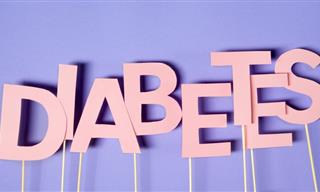1. You have too much stress in your life

Stress affects all of our bodily systems including the endocrine system in our body. If you are in a constant state of tension, your thyroid stops working properly, producing too much or too little hormones. If you have already experienced problems with your thyroid, stress may cause panic attacks or long-term memory loss. A lack of sleep and stressful work may be a cause. In fact, a hectic lifestyle may make you feel nervous constantly. So, to reduce the risks, it is recommended that you sleep enough, walk a lot and do exercises. If you're feeling rather stressed, be sure to speak to a psychologist.
2. You don't consume enough fats
When following a diet it is important to know which foods you should avoid. But, while a low-fat diet will help you lose weight, many people who opt for this method do not just stop consuming bad fats, but also the good ones - which is extremely important for our brain and thyroid. Good fats are found in olive and linseed oil, eggs, dairy products, meat, fish and wheat germ. It's better to not stop eating these foods. In doing so, your diet will help you achieve positive results giving you a healthy body.
3. You eat too many soy-based products

Soybean contains a lot of useful microelements, vitamins and can replace animal products. However, it's recommended that you do not eat too much food that contains soy as it will have a bad effect on your thyroid, making it work slower. When we eat a lot of soy-based products, the thyroid absorbs less iodine which is important to keep the thyroid working properly. So, how can this problem be avoided? The best way would be to reduce the amount of soy foods you eat, adding more products that contain iodine, including vegetables, berries, fruits, and seafood. Cranberry, shrimp, mussels, squid and sea fish are all beneficial for your thyroid.
4. You eat too many cruciferous vegetables
Scientists at the Oregon State University discovered that raw cruciferous vegetables affect the work of the thyroid. For this reason, it is not recommended that you eat a lot of cabbage, turnips, and radishes, particularly if you suffer from an iodine deficiency. This is because these products contain glucosinolates which contain nitrogen and sulfur - which is why the vegetables are slightly bitter. When these elements get inside the body they affect the thyroid, causing a goiter. For this reason, it's better to eat vegetables like beets, tomatoes, and celery.
5. Smoking

Smoking not only affects our lungs - studies show that it is also bad for the thyroid. Tobacco slowly makes the thyroid produce more and more hormones, causing hyperthyroidism. What's more, cigarettes contain toxins, taking our body six days to remove. At this point, the amount of iodine in the thyroid decreases. Here, the level of thyroid hormones in your blood rises, worsening the thyroid.
6. You consume too many products that contain caffeine
While it is fine to start your day with a cup of coffee, it isn't a good idea to drink coffee too often as the caffeine increases the amount of cortisol in the body. Consequently, the stress hormone affects the thyroid, making our metabolism worse. Nevertheless, scientists still argue about the amount of coffee that won't have an impact on your health - as it varies between 2 to 6 cups a day. 5fl oz of grain coffee contains 110-160mg of caffeine (depending on the type of coffee). Bear in mind that products like chocolate, coca cola, and energy drinks contain caffeine too.
7. You eat high glycemic index foods

The glycemic index is a ranking of carbohydrate foods based on their immediate effect on blood sugar levels. If you have a high glycemic index, it means that the process of breakdown is too quick. It is therefore important to pay attention to what you eat and keep your thyroid healthy. Products that contain high glycemic index include sweets, pastries, pasta, and white rice. These foods contain a huge amount of carbohydrates and they affect the process of iodine absorption. The iodine deficiency leads to thyroid issues. Of course, it is practically impossible to stop eating high glycemic index products, however, you can reduce the amount of them in your diet.
8. You consume butter and margarine
Butter is listed as a high-cholesterol food which affects the lipid balance and thus the thyroid. Despite this fact, it is not recommended that you stop eating animal fats. Butter is still a good source of selenium and vitamin D. It is better to control the amount of butter you eat. Margarine, on the other hand, is best avoided as it is made from trans fats which damage our endocrine and cardiovascular system, leading to obesity.
9. Alcohol abuse
Alcohol can increase or decrease the pancreatic secretions. Both may affect the body. Women start to experience menstrual problems, while men start suffering from low libido. Thyroid issues also have a negative impact on the vegetative nervous system, which may lead to tremors, tachycardia, bowel disorders, mood swings, and other unpleasant symptoms. If your thyroid doesn't work properly and produces excess hormones, the process of dehydrogenase synthesis slows down. Consequently, the impact of alcohol on the body increases.
 Go to BabaMail
Go to BabaMail



























































